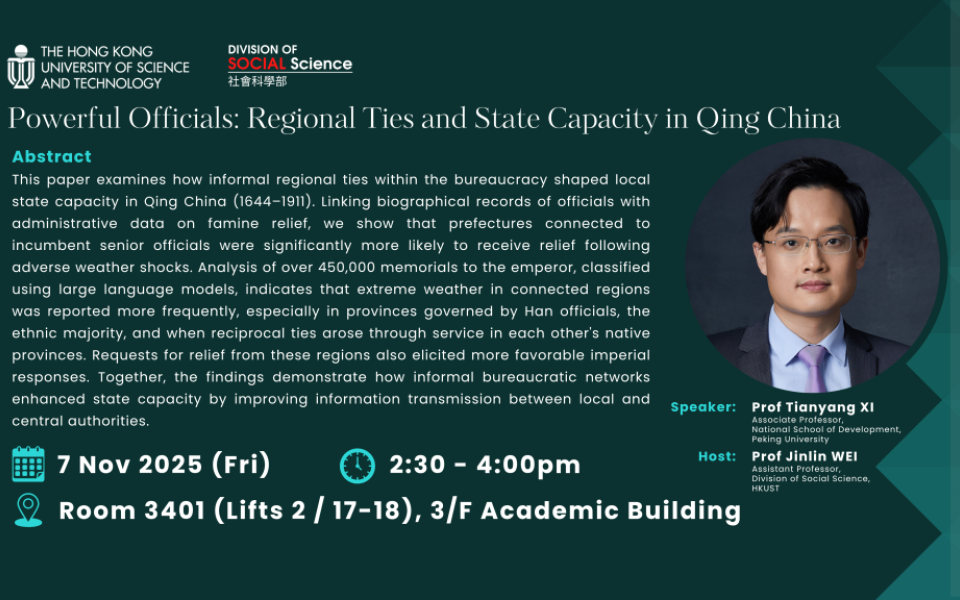This paper examines how informal regional ties within the bureaucracy shaped local state capacity in Qing China (1644–1911). Linking biographical records of officials with administrative data on famine relief, we show that prefectures connected to incumbent senior officials were significantly more likely to receive relief following adverse weather shocks. Analysis of over 450,000 memorials to the emperor, classified using large language models, indicates that extreme weather in connected regions was reported more frequently, especially in provinces governed by Han officials, the ethnic majority, and when reciprocal ties arose through service in each other's native provinces. Requests for relief from these regions also elicited more favorable imperial responses. Together, the findings demonstrate how informal bureaucratic networks enhanced state capacity by improving information transmission between local and central authorities.
Tianyang Xi is an associate professor at the National School of Development at Peking University. His research interests lie in political economy of development and institutions, with a focus on bureaucratic politics and state capacity. His papers appeared on Journals such as Journal of Politics, British Journal of Political Science, Comparative Political studies, and Journal of Development Economics. He obtained Ph.D. degree in political science at New York University before joining Peking University.
Host: Prof Jinlin WEI, Assistant Professor, Division of Social Science, HKUST
